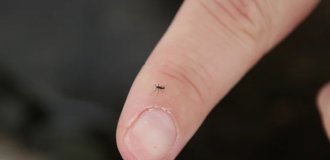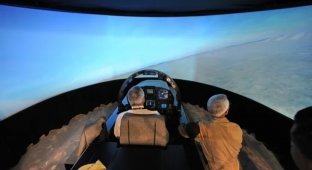In Japan, monkeys ride deer as if they were their personal taxi. Learn more about this unexpected partnership in the rest of this post. 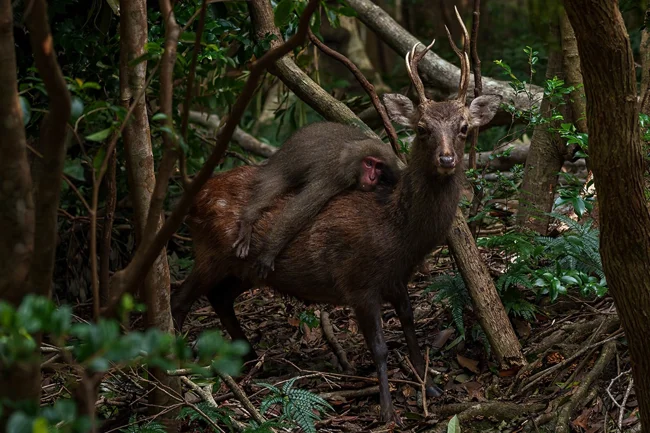
— Take me home, brother, I'm really tired...
Monkeys can't yet control the ungulates and guide them in the right direction, but scientists still call this behavior "animal culture." Because it's not just a one-time prank for the camera—these rides are systematically passed down from generation to generation! 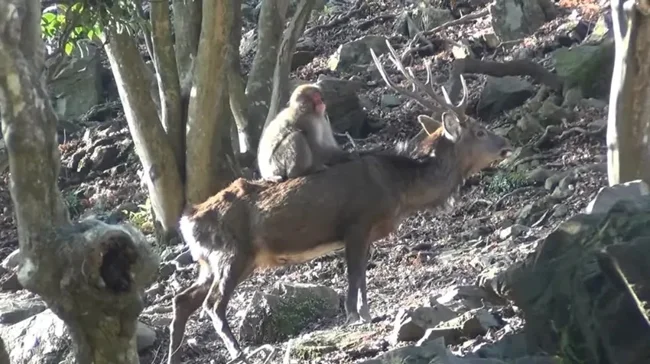
If you hurry, I'll add two more nuts as a tip!!!
Macaques only recently mastered horseback riding: the first recorded sightings of Japanese monkeys riding deer were only in 2010. But the horned monkeys have been keeping an eye on their riders for a long time: the monkeys periodically drop fruits and juicy twigs from trees, which the deer themselves can't reach. They also leave behind feces, which are rich in nitrogen and vitamin B12—something the herbivores are always in short supply of. Therefore, the deer often follow the monkey herds and enjoy the fruits of their labor. 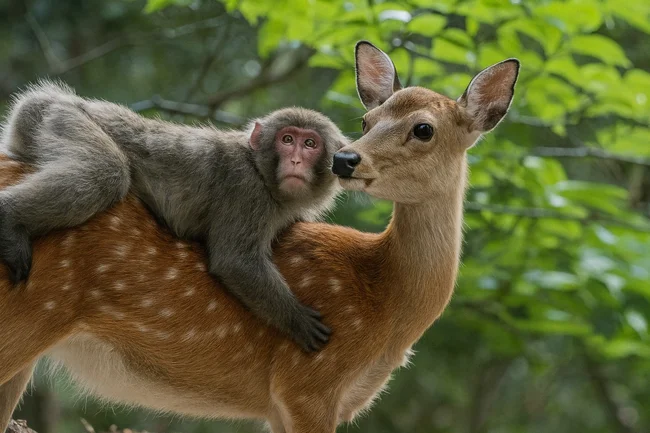
Please don't tell my wife...
Besides, it's always safer in company. Primates are sensitive and noisy creatures that quickly react to danger and alert the entire area to predators with their howls. So the deer can relax and graze peacefully around them. And so the deer relaxed so much that the monkeys literally climbed on their heads. But the benefit of such rides for the primates is not so obvious. If you can't get a deer to go where the macaque wants, then what's the point of climbing it at all? You'll be surprised, but there are four reasons! 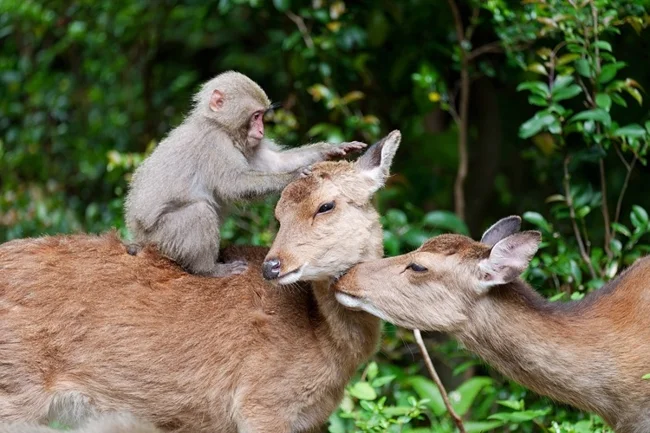
A sweet family: mom, dad, and a warm, woolly flea.
The first is play. Monkey folk sledding has been recorded not all over Japan, but only on one island—Yaku. And this isn't just "one of the Osumi Islands," but a true tropical paradise. Evergreen ancient forest, plenty of food, hot, humid summers, warm, mild winters, and no predators! The island's largest animals are those same macaques and sika deer. So it turns out: animals don't have to fight for survival, run from vicious meat-eaters, or worry about surviving the winter. And if everything is so good, why not play! The deer also become part of these games. True, they don't play themselves, but they don't mind at all if the macaques fool around and jump around them. And sometimes even on them. 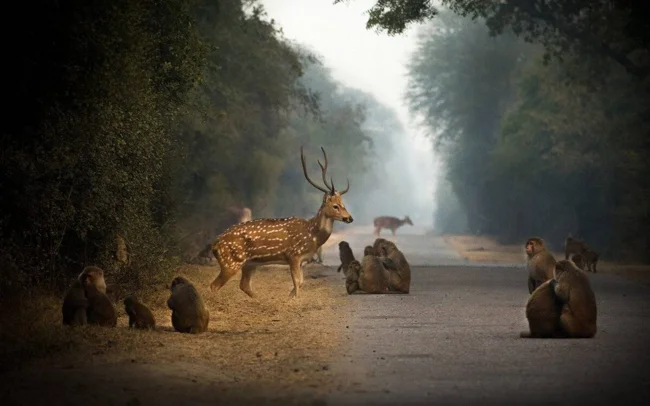
A typical landscape of Yaku, Japan. The island is teeming with free-roaming deer and macaques.
The second reason for the riding is grooming. Scientists constantly observe how the monkeys jump on the deer, pet them, and comb through their fur. However, this behavior shouldn't be confused with that of cleaning birds, which perch on large animals to feed on parasites. While horned animals' fur may contain pests, and monkeys may even remove and/or eat them, they don't deliberately seek out fleas and ticks. Macaque grooming is more social in nature; it's their way of "communicating" with ungulates, calming them and themselves. Social primates value tactile interaction with their fellow primates. They exhibit similar behavior with deer. 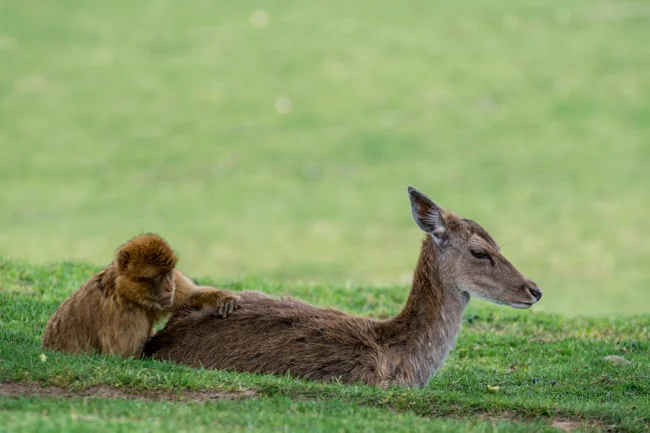
Don't forget to maintain your vehicle: have it serviced and replace consumables promptly!
The third reason is much more pressing. Some macaques don't jump on deer for the ride—they're trying to mate with them! Moreover, the monkeys apparently distinguish between male and female ungulates. Therefore, in all recorded cases, male macaques approached females, while female macaques approached males. Actual mating never occurred; scientists call this substitution sexual behavior. Perhaps this is how young and less successful monkeys relieve stress from raging hormones. Or perhaps it's another way to show a positive attitude—after all, mating plays a social role in our society. 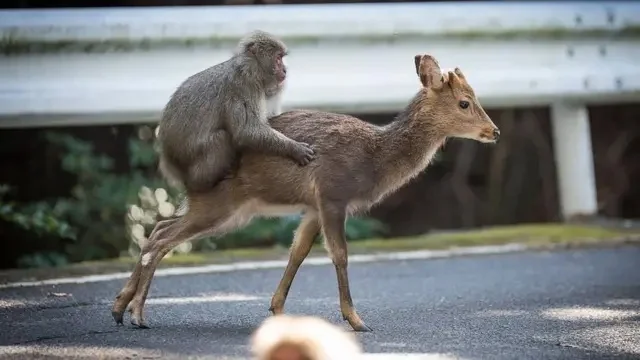
Let's go to a romantic dinner under the cherry blossoms.
And finally, the most common reason for monkey rides is relaxation. Yes, it's that simple. The reindeer are big and warm, wandering quietly through the forest and monotonously grazing, and they don't mind passengers at all. And who cares if the reindeer won't take them anywhere if it's so cozy? 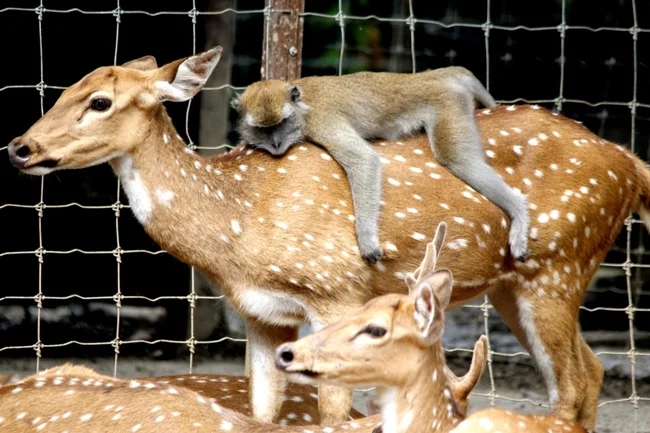
It's like sleeping in a reserved seat carriage, and there's no need to rush. 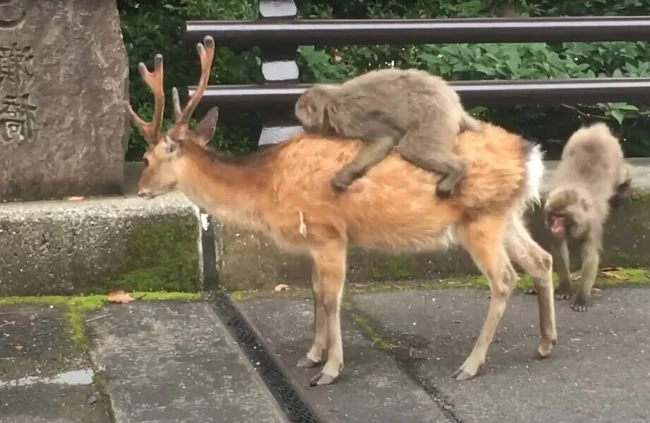
Sanyok, get off, I want to sleep on a deer too.
Interestingly, other Japanese islands have similar macaques and deer, but the culture of riding doesn't exist there, nor does the rest of the world. A single case was recorded in captivity in India, but it was a one-off, and none of the other primates accepted the behavior as normal. Meanwhile, on Yakushima Island, it's a true cultural tradition: adult monkeys set an example for their little ones by jumping on deer as if they were large furry sofas! 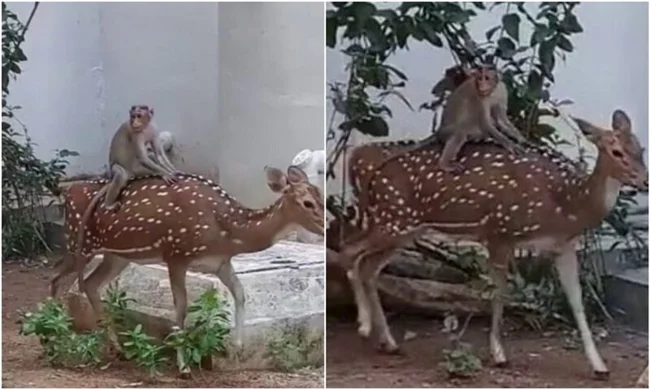
This is the same case when an Indian monkey decided to ride a deer. She's clearly embarrassed and out of place!
Add your comment
You might be interested in:








